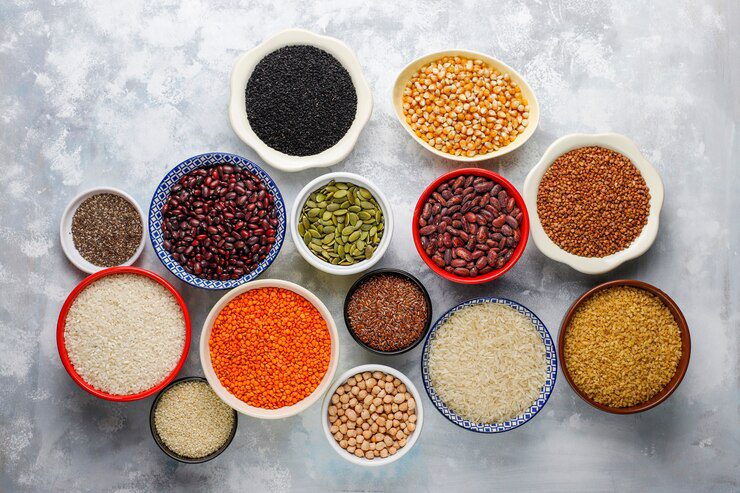This content is for informational and educational purposes only. Always consult a qualified healthcare provider.
Last Updated on April 18, 2025 by Grace Oluchi
Many dietary trends come and go. But “superfoods” have been predominant in the nutrition world for years, with many people touting their miraculous health benefits. However, the term superfoods, is not used by experts in the industry; it’s just a term for foods that claim to have exceptional nutrient levels and health benefits. According to the American Heart Association, there are no specific guidelines for what makes these foods superfoods. True that, there are some tremendous foods out there that are absolutely packed with nutrients and health benefits, like Kale, chia seeds, quinoa, and avocado. But you have to be careful of what you categorize as a superfood.
So, what is the real story behind these “superfoods”? Are they truly the key to optimal health, or are they just another marketing gimmick?
This article will help you understand the science behind them, learn their potential health benefits and limitations, and learn how you can start including them in your diet.
📋 Table of Contents
What Are Superfoods?


The term “superfood” is more of a marketing term than a scientific one. It refers to foods that are high in vitamins, minerals, and antioxidants, which can provide potential health benefits. They can range from fruits and veggies to nuts and seeds, and even fish. The health benefits of these foods are often linked to a healthy, balanced diet, rather than any single food being a “wonder drug”.
Examples of Super Foods
- Blueberries
- Kale
- Salmon
- Spinach
- Chia seeds
- Flaxseeds
- Avocado
- Broccoli
- Turmeric
- Quinoa
- Garlic
- Green tea
- Dark chocolates
- Ginger
- Tuna
- Sardines
- Almonds
- Sweet potatoes
- Apples
- Yogurt
- Lentils
- Walnuts
- Pomegranates
- Goji berries
- Mushrooms
- Acai berries
- Collard greens
The Science Behind Superfoods
So, what makes superfoods so special? Well, the answer lies in their nutrient density. These foods are packed with vitamins, antioxidants, and minerals that can help protect you against chronic diseases like cancer, heart disease, and poor brain function.
For example:
Berries like blueberries, strawberries, and raspberries are rich in antioxidants called anthocyanins, which have been shown to improve heart health and brain function.
Leafy greens like spinach, kale, and collard greens are rich in vitamins A, C, and K, as well as minerals such as calcium and iron.
Salmon, tuna, and sardines are fatty fish that are rich in omega-3 fatty acids, which can help reduce inflammation and improve your heart health.
The Limitations of Superfoods
Superfoods can be a great addition to a healthy diet, but it’s important to remember that they’re not some magical diet. Many of them are also high in calories, sugar, or fat, and because of the term “superfood”, you may end up eating them excessively. This can be detrimental to your health, because too much of these nutrients isn’t good for your body.
Besides, the science behind any superfood is often based on observational studies of animal research, which may be inessential to real-world benefits for humans.
Adding Them To Your Diet
To make the most of superfoods in your diet, you’d need to apply the following tips:
Eat a variety of whole foods: Focus on incorporating a range of whole, unprocessed foods into your diet. Such as fruits, vegetables, whole grains, lean proteins, and healthy fats. The point here is not to isolate your foods, but to eat different foods, to maintain a balanced diet.
Don’t rely on supplements: Of course, supplements are helpful and good for your body, but don’t make the mistake of replacing them with whole foods. Instead, aim to get your nutrients from food sources whenever possible.
Be mindful of portion sizes: Even healthy foods can be detrimental to your health if eaten excessively. Pay attention to serving sizes and overall calorie intake to ensure you’re eating healthily.
Conclusion
Superfoods may not be the magic solution for optimal health, but we can’t take away the fact that they can be a valuable addition to a balanced diet. By understanding the science behind them and adding them to your diet in a mindful way, you can reap their potential health benefits and improve your overall health.
